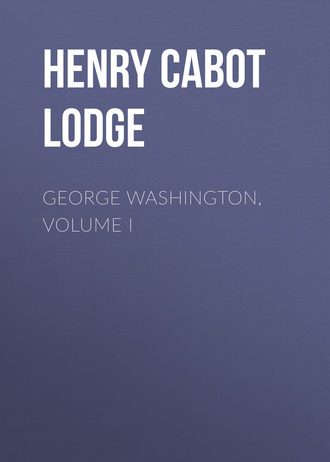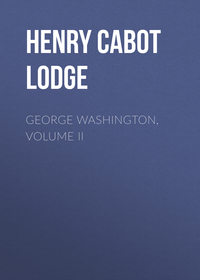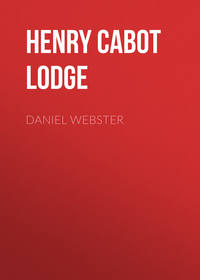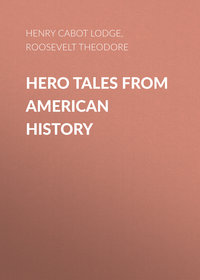 полная версия
полная версияGeorge Washington, Volume I
Nevertheless, at that particular juncture it was, as he himself had said, "high time for a peace." The danger at Newburgh had been averted by his commanding influence and the patriotic conduct of the army. But it had been averted only, not removed. The snake was scotched, not killed. The finishing stroke was still needed in the form of an end to hostilities, and it was therefore fortunate for the United States that a fortnight later, on March 23, news came that a general treaty of peace had been signed. This final consummation of his work, in addition to the passage by Congress of the half-pay commutation and the settlement of the army accounts, filled Washington with deep rejoicing. He felt that in a short time, a few weeks at most, he would be free to withdraw to the quiet life at Mount Vernon for which he longed. But public bodies move slowly, and one delay after another occurred to keep him still in the harness. He chafed under the postponement, but it was not possible to him to remain idle even when he awaited in almost daily expectation the hour of dismissal. He saw with the instinctive glance of statesmanship that the dangerous point in the treaty of peace was in the provisions as to the western posts on the one side, and those relating to British debts on the other. A month therefore had not passed before he brought to the attention of Congress the importance of getting immediate possession of those posts, and a little later he succeeded in having Steuben sent out as a special envoy to obtain their surrender. The mission was vain, as he had feared. He was not destined to extract this thorn for many years, and then only after many trials and troubles. Soon afterward he made a journey with Governor Clinton to Ticonderoga, and along the valley of the Mohawk, "to wear away the time," as he wrote to Congress. He wore away time to more purpose than most people, for where he traveled he observed closely, and his observations were lessons which he never forgot. On this trip he had the western posts and the Indians always in mind, and familiarized himself with the conditions of a part of the country where these matters were of great importance.
On his return he went to Princeton, where Congress had been sitting since their flight from the mutiny which he had recently suppressed, and where a house had been provided for his use. He remained there two months, aiding Congress in their work. During the spring he had been engaged on the matter of a peace establishment, and he now gave Congress elaborate and well-matured advice on that question, and on those of public lands, western settlement, and the best Indian policy. In all these directions his views were clear, far-sighted, and wise. He saw that in these questions was involved much of the future development and wellbeing of the country, and he treated them with a precision and an easy mastery which showed the thought he had given to the new problems which now were coming to the front. Unluckily, he was so far ahead, both in knowledge and perception, of the body with which he dealt, that he could get little or nothing done, and in September he wrote in plain but guarded terms of the incapacity of the lawmakers. The people were not yet ripe for his measures, and he was forced to bide his time, and see the injuries caused by indifference and short-sightedness work themselves out. Gradually, however, the absolutely necessary business was brought to an end. Then Washington issued a circular letter to the governors of the States, which was one of the ablest he ever wrote, and full of the profoundest statesmanship, and he also sent out a touching address of farewell to the army, eloquent with wisdom and with patriotism.
From Princeton he went to West Point, where the army that still remained in service was stationed. Thence he moved to Harlem, and on November 25 the British army departed, and Washington, with his troops, accompanied by Governor Clinton and some regiments of local militia, marched in and took possession. This was the outward sign that the war was over, and that American independence had been won. Carleton feared that the entry of the American army might be the signal for confusion and violence, in which the Tory inhabitants would suffer; but everything passed off with perfect tranquillity and good order, and in the evening Governor Clinton gave a public dinner to the commander-in-chief and the officers of the army.
All was now over, and Washington prepared to go to Annapolis and lay down his commission. On December 4 his officers assembled in Fraunces' Tavern to bid him farewell. As he looked about on his faithful friends, his usual self-command deserted him, and he could not control his voice. Taking a glass of wine, he lifted it up, and said simply, "With a heart full of love and gratitude I now take my leave of you, most devoutly wishing that your latter days may be as prosperous and happy as your former ones have been glorious and honorable." The toast was drunk in silence, and then Washington added, "I cannot come to each of you and take my leave, but shall be obliged if you will come and take me by the hand." One by one they approached, and Washington grasped the hand of each man and embraced him. His eyes were full of tears, and he could not trust himself to speak. In silence he bade each and all farewell, and then, accompanied by his officers, walked to Whitehall Ferry. Entering his barge, the word was given, and as the oars struck the water he stood up and lifted his hat. In solemn silence his officers returned the salute, and watched the noble and gracious figure of their beloved chief until the boat disappeared from sight behind the point of the Battery.
At Philadelphia he stopped a few days and adjusted his accounts, which he had in characteristic fashion kept himself in the neatest and most methodical way. He had drawn no pay, and had expended considerable sums from his private fortune, which he had omitted to charge to the government. The gross amount of his expenses was about 15,000 pounds sterling, including secret service and other incidental outlays. In these days of wild money-hunting, there is something worth pondering in this simple business settlement between a great general and his government, at the close of eight years of war. This done, he started again on his journey. From Philadelphia he proceeded to Annapolis, greeted with addresses and hailed with shouts at every town and village on his route, and having reached his destination, he addressed a letter to Congress on December 20, asking when it would be agreeable to them to receive him. The 23d was appointed, and on that day, at noon, he appeared before Congress.
The following year a French orator and "maître avocat," in an oration delivered at Toulouse upon the American Revolution, described this scene in these words: "On the day when Washington resigned his commission in the hall of Congress, a crown decked with jewels was placed upon the Book of the Constitutions. Suddenly Washington seizes it, breaks it, and flings the pieces to the assembled people. How small ambitious Cæsar seems beside the hero of America." It is worth while to recall this contemporary French description, because its theatrical and dramatic untruth gives such point by contrast to the plain and dignified reality. The scene was the hall of Congress. The members representing the sovereign power were seated and covered, while all the space about was filled by the governor and state officers of Maryland, by military officers, and by the ladies and gentlemen of the neighborhood, who stood in respectful silence with uncovered heads. Washington was introduced by the Secretary of Congress, and took a chair which had been assigned to him. There was a brief pause, and then the president said that "the United States in Congress assembled were prepared to receive his communication." Washington rose, and replied as follows:—
"Mr. President: The great events, on which my resignation depended, having at length taken place, I have now the honor of offering my sincere congratulations to Congress, and of presenting myself before them, to surrender into their hands the trust committed to me, and to claim the indulgence of retiring from the service of my country.
"Happy in the confirmation of our independence and sovereignty, and pleased with the opportunity afforded the United States of becoming a respectable nation, I resign with satisfaction the appointment I accepted with diffidence; a diffidence in my abilities to accomplish so arduous a task, which, however, was superseded by a confidence in the rectitude of our cause, the support of the supreme power of the Union, and the patronage of Heaven. The successful termination of the war has verified the most sanguine expectations; and my gratitude for the interposition of Providence, and the assistance I have received from my countrymen, increases with every review of the momentous contest." Then, after a word of gratitude to the army and to his staff, he concluded as follows: "I consider it an indispensable duty to close this last solemn act of my official life by commending the interests of our dearest country to the protection of Almighty God, and those who have the superintendence of them to his holy keeping.
"Having now finished the work assigned me, I retire from the great theatre of action; and bidding an affectionate farewell to this august body, under whose orders I have so long acted, I here offer my commission, and take my leave of all the employments of public life."
In singularly graceful and eloquent words his old opponent, Thomas Mifflin, the president, replied, the simple ceremony ended, and Washington left the room a private citizen.
The great master of English fiction, touching this scene with skillful hand, has said: "Which was the most splendid spectacle ever witnessed, the opening feast of Prince George in London, or the resignation of Washington? Which is the noble character for after ages to admire,—yon fribble dancing in lace and spangles, or yonder hero who sheathes his sword after a life of spotless honor, a purity unreproached, a courage indomitable, and a consummate victory?"
There is no need to say more. Comment or criticism on such a farewell, from such a man, at the close of a long civil war, would be not only superfluous but impertinent. The contemporary newspaper, in its meagre account, said that the occasion was deeply solemn and affecting, and that many persons shed tears. Well indeed might those then present have been thus affected, for they had witnessed a scene memorable forever in the annals of all that is best and noblest in human nature. They had listened to a speech which was not equaled in meaning and spirit in American history until, eighty years later, Abraham Lincoln stood upon the slopes of Gettysburg and uttered his immortal words upon those who died that the country might live.
1
A report recently discovered shows that more even was intended than was actually done.
The following is a translation of the paper, the original of which is Nos. 172 and 173 of volume 51 of the manuscript series known as Etats-Unis, 1799, 1800 (years 7 and 8 of the French republic):—
"Report of Talleyrand, Minister of Foreign Affairs, on the occasion of the death of George Washington.
"A nation which some day will he a great nation, and which today is the wisest and happiest on the face of the earth, weeps at the bier of a man whose courage and genius contributed the most to free it from bondage, and elevate it to the rank of an independent and sovereign power. The regrets caused by the death of this great man, the memories aroused by these regrets, and a proper veneration for all that is held dear and sacred by mankind, impel us to give expression to our sentiments by taking part in an event which deprives the world of one of its brightest ornaments, and removes to the realm of history one of the noblest lives that ever honored the human race.
"The name of Washington is inseparably linked with a memorable epoch. He adorned this epoch by his talents and the nobility of his character, and with virtues that even envy dared not assail. History offers few examples of such renown. Great from the outset of his career, patriotic before his country had become a nation, brilliant and universal despite the passions and political resentments that would gladly have checked his career, his fame is to-day imperishable,—fortune having consecrated his claim to greatness, while the prosperity of a people destined for grand achievements is the best evidence of a fame ever to increase.
"His own country now honors his memory with funeral ceremonies, having lost a citizen whose public actions and unassuming grandeur in private life were a living example of courage, wisdom, and unselfishness; and France, which from the dawn of the American Revolution hailed with hope a nation, hitherto unknown, that was discarding the vices of Europe, which foresaw all the glory that this nation would bestow on humanity, and the enlightenment of governments that would ensue from the novel character of the social institutions and the new type of heroism of which Washington and America were models for the world at large,—France, I repeat, should depart from established usages and do honor to one whose fame is beyond comparison with that of others.
"The man who, amid the decadence of modern ages, first dared believe that he could inspire degenerate nations with courage to rise to the level of republican virtues, lived for all nations and for all centuries; and this nation, which first saw in the life and success of that illustrious man a foreboding of its destiny, and therein recognized a future to be realized and duties to be performed, has every right to class him as a fellow-citizen. I therefore submit to the First Consul the following decree:– "Bonaparte, First Consul of the republic, decrees as follows:– "Article 1. A statue is to be erected to General Washington. "Article 2. This statue is to be placed in one of the squares of Paris, to be chosen by the minister of the interior, and it shall be his duty to execute the present decree."
2
There is a conflict about the period of this removal (see above, p. 37). Tradition places it in 1735, but the Rev. Mr. McGuire (Religious Opinions of Washington) puts it in 1739.
3
An account of this volume was given in the New York Tribune in 1866, and also in the Historical Magazine (x. 47).
4
The most important are given in Sparks' Writings of Washington, ii. 412, and they may be found complete in the little pamphlet concerning them, excellently edited by Dr. J.M. Toner, of Washington.
5
Enquiry into the Causes and Alienations of the Delaware and Shawanee Indians, etc. London, 1759. By Charles Thomson, afterwards Secretary of Congress.
6
Quoted from the Willis MS. by Mr. Conway, in Magazine of American History, March, 1887, p. 196.
7
Magazine of American History, i. 324.
8
Historical Magazine, 3d series, 1873. Letter communicated by Fitzhugh Lee.
9
Tour in America, 1798-1800.
10
Magazine of American History, 1880, p. 158.
11
For some expressions of Washington's opinions on slavery, see Sparks, viii. 414, ix. 159-163, and x. 224.
12
MS. Diaries in State Department.
13
John Trumbull, Reminiscences, p. 18.
14
These two quotations are not literal, of course, but give the substance of many letters.
15
These two quotations are not literal, of course, but give the substance of many letters.
16
The authorities are hopelessly conflicting as to the numbers on both sides. The British returns on March 26 showed over 19,000 men. They had since that date been weakened by desertions, but to what extent we can only conjecture. The detachments to Florida and the West Indies ordered from England do not appear to have taken place. The estimate of 16,000 to 17,000 seems the most reasonable. Washington returned his rank and file as just over 10,000, which would indicate a total force of 13,000 to 14,000, possibly more. Washington clearly underestimated the enemy, and the best conclusion seems to be that they were nearly matched in numbers, with a slight inferiority on the American side.
17
MS, letter to Lincoln.





